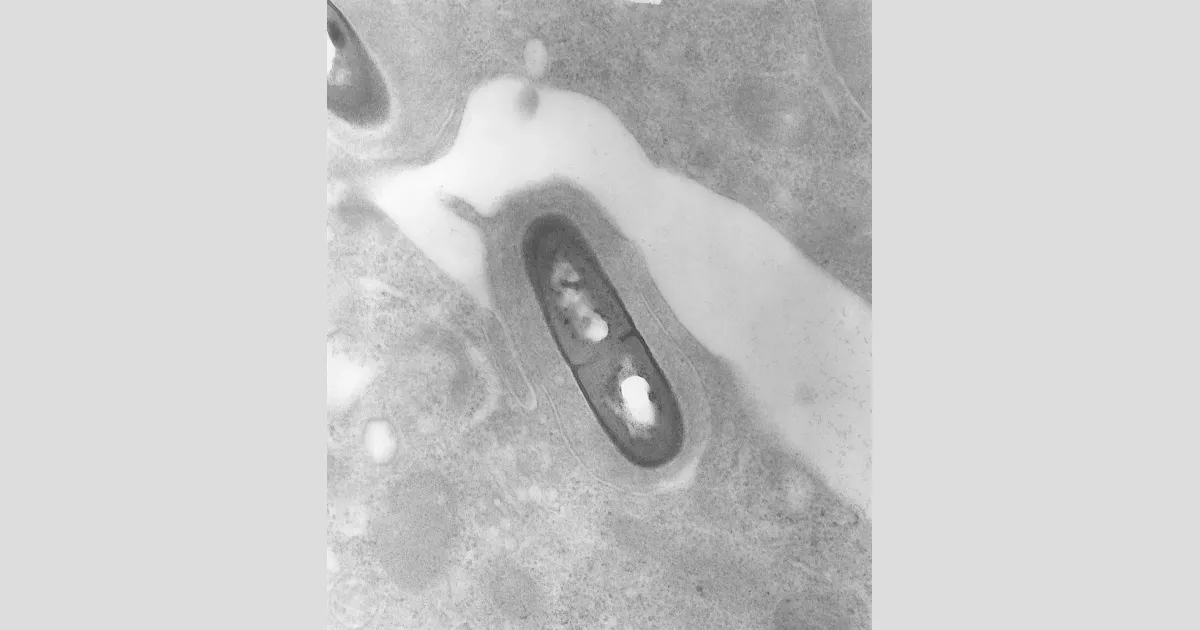Listeria is a genus of Gram-positive, rod-shaped bacteria, consisting of 28 identified species as of 2024. These bacteria are facultatively anaerobic and do not produce endospores. They are intracellular parasites in mammals, and the genus is named after Joseph Lister, a pioneer of sterile surgery.
1926: Discovery of L. monocytogenes
In 1926, L. monocytogenes was discovered by Murray, Webb & Swann.
1929: First Documented Human Case of Listeriosis
In 1929, the first documented human case of listeriosis was described by the Danish physician Aage Nyfeldt.
1940: L. monocytogenes Pirie
In 1940, L. monocytogenes was defined by Pirie.
1957: Classification of Listeria in Bergey's Manual
In 1957, the genus Listeria was classified in the family Corynebacteriaceae through the seventh edition of Bergey's Manual of Systematic Bacteriology.
1966: Discovery of L. grayi
In 1966, L. grayi was discovered by Errebo, Larsen & Seeliger.
1979: Discovery of L. innocua
In 1979, L. innocua was discovered by Seeliger & Schoofs.
1983: L. innocua ex Seeliger
In 1983, L. innocua was defined by Seeliger.
1983: Discovery of L. seeligeri
In 1983, L. seeligeri was discovered by Rocourt & Grimont.
1984: Discovery of L. ivanovii
In 1984, L. ivanovii was discovered by Seeliger et al.
1992: "L. londonensis" Boerlin et al.
In 1992, "L. londonensis" was discovered by Boerlin et al.
2004: Placement in Listeriaceae Family
In 2004, the genus Listeria was placed in the newly created family Listeriaceae.
2008: Listeria Outbreak in Canada
In 2008, cold-cut meats were implicated in a Listeria outbreak in Canada.
2010: "P. rocourtiae" Leclercq et al.
In 2010, "P. rocourtiae" was discovered by Leclercq et al.
2010: Discovery of L. marthii
In 2010, L. marthii was discovered by Graves et al.
2011: Listeriosis Outbreak from Jensen Farms in Colorado
In 2011, improperly handled cantaloupe was implicated in the outbreak of listeriosis from Jensen Farms in Colorado.
2013: "P. weihenstephanensis" Lang Halter et al.
In 2013, "P. weihenstephanensis" was discovered by Lang Halter et al.
2013: Discovery of L. fleischmannii
In 2013, L. fleischmannii was discovered by Bertsch et al.
2014: "P. cornellensis" Den Bakker et al.
In 2014, "P. cornellensis" was discovered by Den Bakker et al.
2014: Discovery of L. aquatica
In 2014, L. aquatica was discovered by Den Bakker et al.
2015: "P. booriae" Weller et al.
In 2015, "P. booriae" was discovered by Weller et al.
2016: "P. booriae" Orsi & Wiedmann
In 2016, "P. booriae" was also recognized by Orsi & Wiedmann.
2016: "P. weihenstephanensis" Orsi & Wiedmann
In 2016, "P. weihenstephanensis" was also recognized by Orsi & Wiedmann.
2018: Discovery of L. costaricensis
In 2018, L. costaricensis" was discovered by Núñez-Montero et al.
2018: Listeriosis Outbreak in Australia
In early 2018, improperly handled cantaloupe was implicated in a similar listeriosis outbreak across eastern Australia.
September 2019: Listeria Outbreaks in the Netherlands
In September 2019, three deaths and a miscarriage were reported in the Netherlands after the consumption of listeria-infected deli meats produced by Offerman.
2019: "M. thailandensis" Leclercq et al.
In 2019, "M. thailandensis" was discovered by Leclercq et al.
2020: Discovery of L. valentina
In 2020, L. valentina was discovered by Quereda et al.
2021: "P. portnoyi" Carlin et al.
In 2021, "P. portnoyi" was discovered by Carlin et al.
2021: Discovery of L. cossartiae cayugensis
In 2021, L. cossartiae cayugensis was discovered by Carlin et al.
2021: Discovery of L. farberi
In 2021, L. farberi was discovered by Carlin et al.
2022: Discovery of "L. swaminathanii"
In 2022, "L. swaminathanii" was discovered by Carlin et al.
2024: Identification of Listeria Species
As of 2024, 28 species of Listeria, a genus of bacteria that acts as an intracellular parasite in mammals, have been identified.
2024: "L. londonensis" Bouznada et al.
In 2024, "L. londonensis" was recognized by Bouznada et al.
2024: Listeria Outbreak in the US
In 2024, cold-cut meats were implicated in a widespread Listeria outbreak in the US.
Mentioned in this timeline
Australia officially the Commonwealth of Australia encompasses the Australian mainland...
Canada is a North American country the second largest in...
Colorado a Mountain and Southwestern U S state is the...
The Netherlands also known as Holland is a country in...

September is the ninth month of the year in the...
Trending

35 minutes ago Warriors face play-in, Curry's injury raises concerns, Kerr lowers expectations, Moody's role?

35 minutes ago Stephen A. Smith criticizes Draymond Green's comments on Nico Harrison as unfair.

36 minutes ago Kris Dunn Recovered From Injury, Briefly Exited Game After Elbow Contact

36 minutes ago Al Horford's Role Shifts: Back to Starting Lineup, Then Bench, Mindset Revealed.

2 hours ago Jafar Panahi faces restrictions, continues filmmaking despite adversity and imprisonment in Iran.

2 hours ago Joe Rogan Interviews RFK Jr. on Trump's ICE Raids and US Taxpayer Losses.
Popular

Jesse Jackson is an American civil rights activist politician and...

Hillary Diane Rodham Clinton is a prominent American politician lawyer...

Jim Carrey is a Canadian-American actor and comedian celebrated for...

XXXTentacion born Jahseh Dwayne Ricardo Onfroy was a controversial yet...

Michael Joseph Jackson the King of Pop was a highly...

Kashyap Pramod Patel is an American lawyer who became the...
